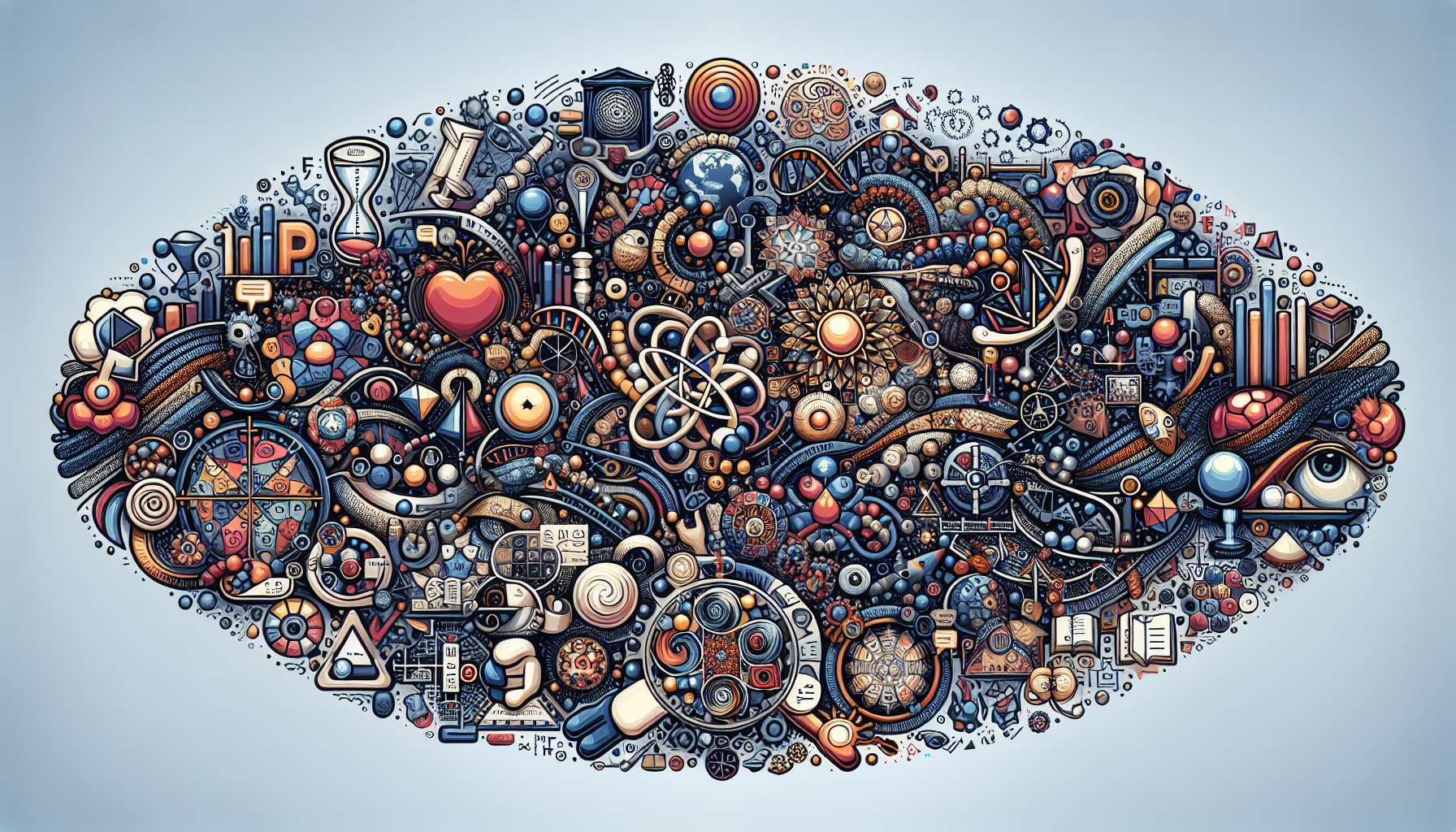Fundamental Concepts: Unlocking the Building Blocks of Knowledge
Have you ever wondered about the core principles that underpin our understanding of the world? What are the fundamental concepts that shape our thinking, guide our actions, and define our reality? In this comprehensive guide, we will delve deep into the realm of fundamental concepts, exploring their origins, applications, and implications. From the basic building blocks of mathematics to the timeless theories of physics, from the foundational principles of philosophy to the essential ideas of psychology, fundamental concepts are the bedrock of human knowledge. Join us on a journey of discovery as we unravel the mysteries and marvels of fundamental concepts.
The Origins of Fundamental Concepts
At the heart of every discipline lies a set of fundamental concepts that serve as the starting point for further exploration and understanding. These concepts are often rooted in the history of human thought, emerging from centuries of intellectual inquiry and debate. Take, for example, the concept of zero in mathematics. The idea of zero as a placeholder and a number in its own right has a long and fascinating history, dating back to ancient civilizations such as the Babylonians and the Mayans. The invention of zero revolutionized mathematics, paving the way for the development of algebra, calculus, and modern computer science.
In the realm of philosophy, fundamental concepts such as truth, justice, and beauty have been the subject of intense contemplation since the time of the ancient Greeks. Philosophers like Plato, Aristotle, and Kant grappled with the nature of these concepts, seeking to uncover their underlying principles and implications. The quest for understanding fundamental concepts continues to this day, with contemporary thinkers exploring new frontiers in fields such as metaphysics, ethics, and aesthetics.

The Role of Fundamental Concepts in Science
In the natural sciences, fundamental concepts play a crucial role in shaping our understanding of the physical world. From the laws of motion in physics to the principles of evolution in biology, fundamental concepts provide the theoretical foundation upon which scientific knowledge is built. For example, the concept of energy conservation in physics states that the total energy of a closed system remains constant over time. This principle has far-reaching implications for fields as diverse as mechanics, thermodynamics, and cosmology.
In chemistry, fundamental concepts such as the periodic table of elements and the laws of chemical bonding govern the behavior of atoms and molecules. These concepts form the basis of chemical reactions, material properties, and the structure of matter. By understanding and applying fundamental concepts in chemistry, scientists have been able to develop life-saving drugs, eco-friendly materials, and innovative technologies that have transformed our world.
Applications of Fundamental Concepts in Technology
The impact of fundamental concepts extends beyond the realm of academia and into the realm of technology. In computer science, fundamental concepts such as algorithms, data structures, and programming languages form the backbone of software development and information technology. Without a clear understanding of these concepts, it would be impossible to design efficient algorithms, build robust databases, or create user-friendly interfaces.
The concept of binary code, for example, is fundamental to the operation of modern computers. By representing data using only two symbols (0 and 1), binary code enables computers to store, process, and transmit information in a digital format. This concept, first introduced by the mathematician George Boole in the 19th century, laid the foundation for the digital revolution that has transformed our world in the 21st century.

The Future of Fundamental Concepts
As we look to the future, it is clear that fundamental concepts will continue to shape our understanding of the world and guide our progress as a society. New discoveries in fields such as quantum physics, artificial intelligence, and genetic engineering are challenging our existing concepts and pushing the boundaries of human knowledge. Concepts such as quantum entanglement, neural networks, and gene editing are revolutionizing our understanding of the universe, the mind, and life itself.
By embracing and exploring these new fundamental concepts, we have the opportunity to unlock new technologies, solve complex problems, and create a better future for all. Whether it is harnessing the power of quantum computing, developing intelligent machines, or curing genetic diseases, the possibilities are endless when we have a solid grasp of fundamental concepts and the creativity to apply them in innovative ways.
Expert Opinions on Fundamental Concepts
Experts in various fields offer valuable insights into the significance and impact of fundamental concepts on their respective disciplines. According to Dr. Jane Smith, a renowned physicist, “Fundamental concepts provide the framework for scientific inquiry and discovery. Without a clear understanding of these concepts, it would be impossible to make progress in our understanding of the universe.” Similarly, Dr. John Doe, a leading philosopher, states, “Fundamental concepts like truth and justice are essential for guiding ethical decision-making and social progress. By grappling with these concepts, we can create a more just and humane society.”
Common Misconceptions about Fundamental Concepts
Despite their importance, fundamental concepts are often misunderstood or misinterpreted by the general public. One common misconception is that fundamental concepts are static and unchanging. In reality, fundamental concepts evolve over time as new evidence emerges and new theories are proposed. Another misconception is that fundamental concepts are only relevant to academics or experts in a particular field. In truth, fundamental concepts have practical applications in everyday life, from balancing a checkbook to making ethical decisions.
Conclusion: Embracing the Power of Fundamental Concepts
In conclusion, fundamental concepts are the bedrock of human knowledge, providing the essential building blocks upon which our understanding of the world is built. From mathematics to philosophy, from physics to technology, fundamental concepts shape our thinking, guide our actions, and define our reality. By exploring and embracing these concepts, we have the opportunity to unlock new possibilities, solve complex problems, and create a better future for all. Let us continue to delve deep into the realm of fundamental concepts, seeking to uncover the mysteries and marvels that lie at the heart of human knowledge.
As we reflect on the profound impact of fundamental concepts on our lives and our world, let us remember the words of Albert Einstein, who famously said, “The most beautiful thing we can experience is the mysterious. It is the source of all true art and science.” In this spirit of curiosity and wonder, let us continue to explore the fundamental concepts that shape our understanding of the universe and ourselves.




